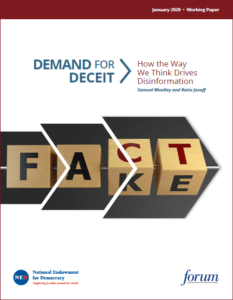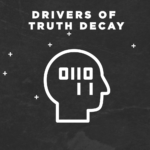 Technology companies have governments over a barrel, argues Marietje Schaake, international policy director at Stanford’s Cyber Policy Center. Whether they are maximising traffic flow efficiency, matching pupils with their school preferences, trying to anticipate drought based on satellite and soil data, most governments heavily rely on critical infrastructure and artificial intelligence developed by the private sector. This growing dependence has profound implications for democracy, she writes for The Financial Times:
Technology companies have governments over a barrel, argues Marietje Schaake, international policy director at Stanford’s Cyber Policy Center. Whether they are maximising traffic flow efficiency, matching pupils with their school preferences, trying to anticipate drought based on satellite and soil data, most governments heavily rely on critical infrastructure and artificial intelligence developed by the private sector. This growing dependence has profound implications for democracy, she writes for The Financial Times:
An unprecedented information asymmetry is growing between companies and governments. We can see this in the long-running investigation into interference in the 2016 US presidential elections. Companies build voter registries, voting machines and tallying tools, while social media companies sell precisely targeted advertisements using information gleaned by linking data on friends, interests, location, shopping and search. This has big privacy and competition implications, yet oversight is minimal. Governments, researchers and citizens risk being blindsided by the machine room that powers our lives and vital aspects of our democracies.
We must rebalance the information asymmetry between tech companies and democratic governments by making oversight proportionate to the power technology companies already have, Schaake contends.
It’s “pretty clear” what’s behind misinformation’s toxic effect on democracy and political discourse, the comedian and actor Sacha Baron Cohen observed recently, “All this hate and violence is being facilitated by a handful of internet companies that amount to the greatest propaganda machine in history.”
 As with the war on drugs, the chief villains in this account are the vectors: the social media companies and their recommendation algorithms, which stoke the viral profusion of preposterous content, notes analyst Gideon Lewis-Krauss. But it’s not true: such commentators focus on supply and ignore demand.
As with the war on drugs, the chief villains in this account are the vectors: the social media companies and their recommendation algorithms, which stoke the viral profusion of preposterous content, notes analyst Gideon Lewis-Krauss. But it’s not true: such commentators focus on supply and ignore demand.
The first step toward an honest reckoning with the reality of demand is to admit that political polarization long predates the rise of social media. By the time Facebook opened its walled orchard to everyone in 2006, the US had already spent 40 years sorting itself into two broad camps, as Ezra Klein points out in his new book Why We’re Polarized, he writes for WIRED:
Klein draws on the work of the political scientist Lilliana Mason to describe how political polarization has resulted in the “stacking” of otherwise unrelated identities under the heading of political affiliation. Where we might once have expressed solidarity with one another along any number of axes that had no obvious political valence—as members of the same faith, residents of the same town, fans of the same music—more and more of these affiliations were, by the 2000s, tagged and subsumed under the two flagship “mega-identities” on offer in US politics.
A thorough demand-side account would allow that it might in fact be tribalism all the way down: that we have our desires and priorities, and they have theirs, and both camps will look for the supply that meets their respective demands, Lewis-Krauss concludes.
And while we’re on on the subject of demand for disinformation…..

RAND
There is a market for information. Some people—journalists, researchers, anyone with a keyboard—produce information. Others are willing to exchange something of value for it, even if that something is mere time and attention. This applies to information that is true and therefore useful for the purposes of making decisions informed by accurate judgments; it also applies to information that is not, Dean Jackson writes for @ThinkDemocracy’s Power 3.0 blog:
Following a string of dramatic instances in which disinformation was spread over social media to purposefully manipulate public perception and political events, the world is more closely scrutinizing disinformation’s role in these markets. Most of this scrutiny has fallen on the “supply” side: who produces disinformation, for what purpose, and how do they disseminate it? But every transaction has a seller and a buyer. A new paper from the International Forum for Democratic Studies examines “demand” for disinformation: why do people consume, believe, and share demonstrably false information?
 Social media pose acute problems for American democracy – indeed, for all democracies, notes Stanford’s Francis Fukuyama. The Internet has in many respects displaced legacy media like newspapers and television as the leading source of information about public events, and the place where they are discussed, he writes for Project Syndicate. But social media have enormously greater power to amplify certain voices, and to be weaponized by forces hostile to democracy, from Russian trolls to American conspiracy theorists. This has led, in turn, to calls for the government to regulate Internet platforms in order to preserve democratic discourse itself, adds Fukuyama, a former board member of the National Endowment for Democracy.
Social media pose acute problems for American democracy – indeed, for all democracies, notes Stanford’s Francis Fukuyama. The Internet has in many respects displaced legacy media like newspapers and television as the leading source of information about public events, and the place where they are discussed, he writes for Project Syndicate. But social media have enormously greater power to amplify certain voices, and to be weaponized by forces hostile to democracy, from Russian trolls to American conspiracy theorists. This has led, in turn, to calls for the government to regulate Internet platforms in order to preserve democratic discourse itself, adds Fukuyama, a former board member of the National Endowment for Democracy.







